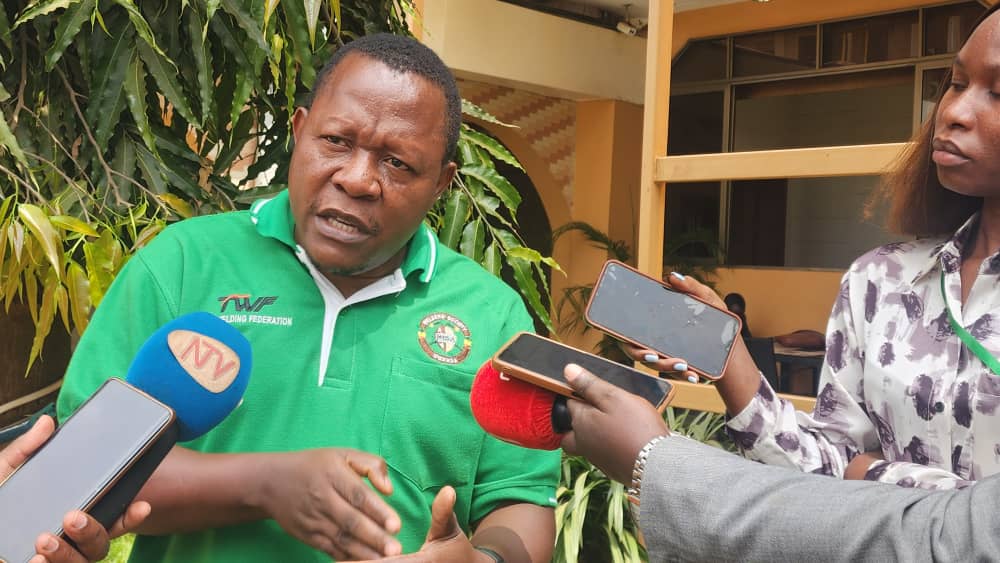Experts in Uganda’s welding industry are calling for greater investment in modern training technologies to address the critical skills gap hindering key sectors such as oil and gas, infrastructure, and manufacturing.
As these industries expand, the demand for highly skilled welders continues to outpace supply, creating an urgent need for advanced training facilities and programs.
At an event showcasing virtual reality (VR) welding simulations, Ronald Ssezibwa, President of the Welders Society Uganda, emphasized the importance of adopting cutting edge training methods to reduce costs, enhance skill acquisition, and align Ugandan welders with international standards.
“Training a welder in oil and gas pipelines requires using real materials like pipeline sections, which are extremely expensive,” Ssezibwa said, noting that traditional welding training is prohibitively costly.
For instance, training a welder for 38 weeks in pipeline welding can cost up to $15,000, a barrier for many aspiring welders and institutions.
Virtual reality welding simulations offer a transformative solution, enabling trainees to practice techniques in a controlled environment before transitioning to real-world tasks.
This approach reduces material waste, lowers costs, and minimizes environmental impact caused by high energy consumption and harmful fumes.
“Virtual reality training allows welders to master the seven key parameters of welding with precision and confidence,” Ssezibwa explained. “It also reduces emissions and aligns with global environmental standards.”
Ssezibwa underscored the importance of sector-specific training to meet the unique demands of industries like shipbuilding, infrastructure, and oil and gas.
“A pipeline welder must meet the rigorous standards of the oil and gas industry, while a structural welder for high-rise buildings or bridges requires entirely different skills,” he said.
Despite Uganda’s potential, Ssezibwa admitted that the country has yet to fully embrace international standards, leaving local welders at a disadvantage. Many lack the advanced certifications required for high-demand jobs in oil and gas.
“Certification is critical, but it must be supported by job creation,” he stressed, urging collaboration between the government and private sector to certify welders and create opportunities for skill development.
Ssezibwa also criticized the reliance on foreign labor for major projects. “We train locals, but foreigners are often brought in to do the jobs. Ugandans must be adequately prepared and prioritized,” he said.
Denis Kamurasi, Director of Business Development at SCOG Elite Uganda Limited and Vice Chairperson of the Association of Uganda Oil and Gas Service Providers, echoed these concerns. Speaking at the launch of the VR welding tool, Kamurasi highlighted the lack of skilled welders as a missed opportunity for Ugandans.
“While we’ve made progress in training certified welders, many lack industrial exposure to gain practical experience,” he said.
The VR tool bridges this gap by replicating real-world welding conditions, ensuring trainees meet international certifications such as those set by the American Welding Society (AWS).
Kamurasi noted that this initiative aligns with Uganda’s goal to increase local participation in projects like the 1,440-kilometer East African Crude Oil Pipeline.
“No employer will risk hiring an uncertified welder for sensitive tasks like pipeline welding, where mistakes can jeopardize entire projects,” he explained.
The VR tool also serves as an assessment mechanism for employers to evaluate and address skill gaps, helping welders maintain proficiency even when not actively employed.
With over 500 certified welders in the country, Kamurasi highlighted the potential to position Uganda as a global supplier of skilled labor.
“There’s a global demand for welders over 300,000 annually in the Middle East alone. This initiative could reduce unemployment and boost household incomes,” he said.
Kamurasi praised partnerships with organizations like TotalEnergies, which is funding the training of 200 welders at the Uganda Petroleum Institute Kigumba. Such collaborations are part of a larger strategy to establish Uganda as a regional hub for artisanal and technical skills.
Prof. Charles Kwesiga, Executive Director of the Uganda Petroleum Institute Kigumba, stressed the life-or-death importance of skilled welding in the oil and gas sector. Referencing global disasters like the Exxon Valdez oil spill and the British Petroleum explosion, he warned of the risks associated with poor welding practices.
“If a pipeline weld contains an air gap and hot gases are applied, the trapped air can expand, leading to a rupture,” he explained. “Such failures can cause massive destruction of land, property, and lives.”
Prof. Kwesiga emphasized adopting modern training methods to ensure welders meet international safety and quality standards, protecting both people and the environment.

